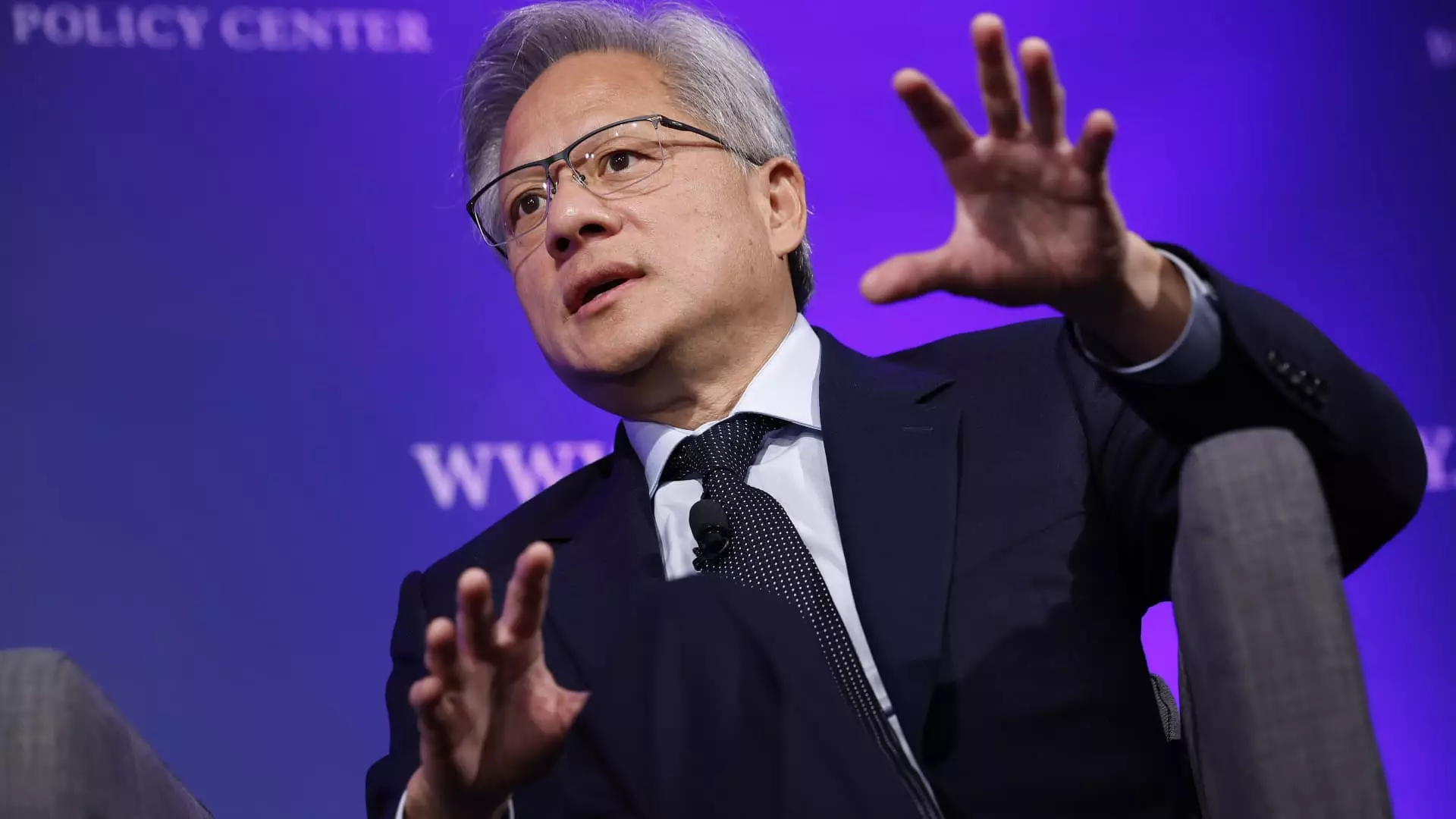Looking Beyond the Hype: Analyzing the Future of Tech and Biotech Investments

As the tech world gears up for the much-anticipated address by Nvidia’s CEO Jensen Huang at the Consumer Electronics Show (CES), investors are increasingly focused on the implications this may have for the artificial intelligence (AI) sector. Huang’s speech is more than just corporate posturing; it is seen as a potential turning point for Nvidia’s stock and, by extension, the AI market itself. Despite ongoing chatter and optimism, experts like Joel Kulina of Wedbush highlight a troubling stagnation in Nvidia’s share price, particularly when compared to competitors like Marvell and Broadcom. The stock has been largely dormant, which raises questions about investor sentiment and the broader implications for AI investments.
In a market driven by innovation and technological advancements, expectations are high. Investors are looking for assurances about Nvidia’s AI robotics strategy, the momentum of its Blackwell architecture, and how these developments could impact supply and demand. More than just a scheduled speech, Huang’s remarks are poised to offer crucial insights, potentially reigniting investor enthusiasm—or, conversely, amplifying concerns if expectations are not met. The apparent need for a “catalyst” underscores investor vulnerability to speculative trading and market fluctuations.
Shifting focus to the biotech sector, specifically Axsome Therapeutics, analyst Kevin Mahn sees substantial potential. This company has experienced a downturn since the recent election, but Mahn argues that its robust pipeline targeting central nervous system disorders, including Major Depressive Disorder and Alzheimer’s Disease, positions it favorably for a turnaround. His commentary emphasizes an increasing attraction of smaller biotech firms to larger pharmaceutical companies, emphasizing the potential for merger and acquisition (M&A) activity. The evolving landscape in healthcare provides fertile ground for investing, particularly as the market seeks innovative solutions to enduring medical challenges.
The narrative around Axsome Therapeutics highlights a crucial aspect of investment: timing. In rapidly evolving sectors like biotech, shifts in regulatory approval processes, clinical trial results, and market demand can dramatically alter a company’s trajectory. Therefore, investors need to navigate these uncertainties carefully, as well as consider the potential volatility accompanying untapped markets and breakthrough treatments.
In the entertainment technology space, Take-Two Interactive emerges as another significant figure, particularly in light of the anticipated release of “Grand Theft Auto VI.” Analyst Jason Bazinet from Citi outlines a $225 price target for the company, largely contingent on the game’s successful launch. This situation exemplifies the high-stakes environment of the gaming industry, where a single title’s release can dramatically affect stock performance. Historical patterns show that while delays can depress stock prices temporarily, recovery often follows once a promising release occurs.
This volatility in the stock market linked to specific game launches indicates a broader trend where investor confidence can be predicated on consumer anticipation and engagement. Such circumstances require investors to remain vigilant, balancing short-term market responses with long-term industry potential.
Both the tech and biotech sectors present complex investment landscapes filled with both opportunities and uncertainties. As companies like Nvidia and Axsome Therapeutics navigate the intricate parameters of innovation and market demand, investors need to remain proactive, discerning the nuances behind price movements and market sentiment. The landscape may be rife with speculation, but careful analysis and foresight can illuminate pathways to lucrative investment returns in this ever-evolving market.





